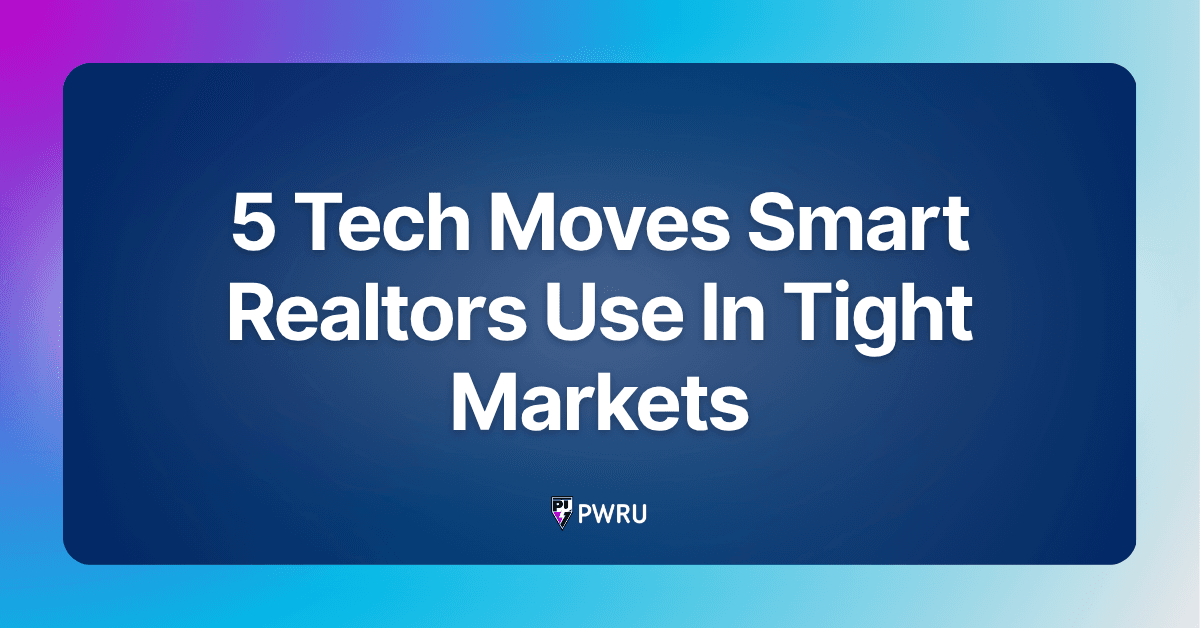Most real estate agents never learn why star performers stay at certain brokerages while others constantly jump ship. The retention strategies that top brokerages use aren’t secrets, but they’re rarely discussed openly. Understanding these tactics helps you evaluate your current brokerage and identify what you should demand from any real estate organization.
The Real Reasons Agents Stay
Agent retention comes down to five core elements. Compensation matters, but culture decides everything. Technology support, professional development, and systematic business building separate retaining brokerages from revolving-door operations.
Star performers don’t leave for slightly better commission splits. They leave when they feel unsupported, undervalued, or stuck in systems that limit their growth potential.

Compensation That Actually Retains Talent
Standard commission structures range from 5% to 6% of listing prices, but retention happens in the details. Top brokerages offer:
Progressive commission splits that increase with production milestones. Starting agents might earn 60/40 splits that progress to 80/20 or 90/10 as volume grows. This rewards loyalty and production simultaneously.
Profit-sharing opportunities signal long-term partnership potential. When agents receive quarterly or annual profit distributions, they become invested in brokerage success beyond individual transactions.
Non-traditional benefits like paid time off, health insurance, and fixed stipends. These weren’t common in real estate five years ago. Now they differentiate retention-focused brokerages from traditional models.
Recognition programs with tangible rewards. Vouchers, discounts, commission increases, paid trips, and partnership pathways create achievement milestones beyond basic production goals.
The key insight: retention-focused compensation addresses both immediate financial needs and long-term wealth building.
Systems That Support Production
Systematic business building represents the most overlooked retention factor. Agents leave brokerages that treat them as independent contractors without support infrastructure.
Structured onboarding processes set new agents up for immediate productivity. This includes CRM training, lead generation systems, and transaction management protocols that work from day one.
Standardized training programs ensure consistent skill development across the organization. Weekly training, monthly workshops, and quarterly planning sessions create predictable growth paths.
Production coaching systems provide regular accountability and guidance. Agents who receive consistent coaching produce more and stay longer than those left to figure things out independently.
Brokerages that systematize support create environments where agents feel empowered rather than abandoned.

Technology Infrastructure That Matters
Technology investment directly impacts agent productivity and retention. Star performers demand tools that enhance rather than complicate their workflow.
Comprehensive CRM systems manage lead nurturing, client communications, and transaction tracking in unified platforms. Agents can automate follow-up sequences, set listing alerts, and plan daily activities efficiently.
Integration capabilities connect CRM systems with marketing platforms, transaction management software, and accounting tools. Seamless data flow eliminates double-entry and reduces administrative overhead.
Mobile optimization ensures agents can work effectively from any location. Responsive platforms support the mobile nature of real estate work without compromising functionality.
AI-powered lead qualification helps agents focus time on high-potential prospects rather than chasing every inquiry. Smart routing and automated initial responses improve conversion rates while preserving agent time for relationship building.
Leading brokerages invest in technology stacks that make agents more productive, not just more connected.
Professional Development That Drives Growth
Ongoing education and skill development keep agents competitive and engaged. Retention-focused brokerages provide:
Industry-specific training covering market trends, regulatory changes, and new sales techniques. This includes in-person seminars, online courses, and peer learning opportunities.
Mentorship programs connecting new agents with experienced performers. Structured mentorship provides guidance, validation, and practical business building advice.
Leadership development for agents interested in team building or management roles. Clear advancement paths retain ambitious agents who might otherwise start their own brokerages.
Technology training ensuring agents maximize their tool investments. Regular platform updates, new feature rollouts, and best practice sharing maintain technological competency.
Professional development signals that brokerages invest in agent success rather than just extracting commission revenue.

Culture Over Control
Partnership approaches outperform management approaches for agent retention. Top brokerages provide resources and support while respecting agent autonomy and self-motivation.
Open communication channels allow agents to provide feedback, request support, and influence brokerage decisions. Regular meetings, anonymous surveys, and leadership accessibility create collaborative environments.
Team collaboration spaces encourage resource sharing and peer support. Private communication channels, shared marketing materials, and collective problem-solving strengthen agent relationships with the organization.
Recognition programs celebrate achievements beyond just sales volume. Community involvement, client service excellence, and peer mentorship deserve acknowledgment alongside production milestones.
Inclusive decision-making involves agents in policy changes, technology selections, and operational improvements. When agents feel heard and valued, retention improves dramatically.
Culture problems cause more agent departures than compensation issues. Building partnership-based relationships requires intentional effort and consistent execution.
How Smart Agents Track Their Success
Understanding your own retention value requires systematic tracking of key performance indicators. This is where Pulse Intelligence becomes invaluable for agents evaluating their current situation and planning next steps.
Smart agents track lead conversion rates, transaction timelines, client satisfaction scores, and income progression monthly. This data reveals whether your current brokerage supports or hinders your growth potential.
Production metrics show whether brokerage systems actually improve your results. Lead quality, conversion rates, and transaction volume should trend upward with proper support.
Time allocation analysis reveals how much administrative work your brokerage eliminates versus creates. Efficient systems free up time for revenue-generating activities.
Professional development progress demonstrates whether you’re gaining skills and market knowledge that enhance long-term earning potential.
Regular performance analysis helps you identify when it’s time to demand better support or consider alternative opportunities.
Strategic Recruitment Signals Brokerage Health
Counter-intuitively, brokerages that recruit aggressively often retain agents better than those focused solely on existing teams. Continuous recruitment signals growth, expansion, and leadership confidence in their value proposition.
When brokerages consistently attract new talent, existing agents gain confidence in organizational stability and market position. This demonstrates that the brokerage is thriving rather than just surviving.
However, recruitment should complement rather than replace retention efforts. Brokerages that recruit without supporting existing agents create turnover rather than growth.

Evaluating Your Current Situation
Most agents never systematically evaluate whether their brokerage supports or limits their potential. Use these questions to assess your situation:
Does your brokerage provide systematic business building support or just basic transaction services? Are you receiving regular training, coaching, and professional development opportunities? Is the technology infrastructure enhancing your productivity or creating additional administrative burden?
Are you part of a collaborative culture or treated as a commission-generating contractor? Do leadership decisions consider agent input and long-term success?
Most importantly, are your production, income, and professional satisfaction improving year over year? If not, your current brokerage may not be the right long-term fit.
Taking Action on What You’ve Learned
Understanding retention strategies empowers you to make informed decisions about your real estate career. Whether evaluating your current brokerage or considering alternatives, focus on organizations that demonstrate systematic commitment to agent success.
Look for compensation structures that reward both production and loyalty. Seek systematic business building support rather than just basic services. Demand technology investments that enhance rather than complicate your workflow.
Most importantly, choose organizations that treat you as a partner rather than a contractor. Your success should align with brokerage success in mutually beneficial relationships.
If your current situation doesn’t measure up, start planning your next move. The best time to evaluate alternatives is when you’re performing well, not when you’re struggling or frustrated.
Get started with systematic performance tracking to understand your current position and plan your next steps effectively. Smart agents use data to make career decisions rather than relying on emotions or assumptions.
The retention strategies that work aren’t secrets. They’re systematic approaches to supporting agent success that forward-thinking brokerages implement consistently. Understanding these strategies helps you demand better support and build a more successful real estate career.





